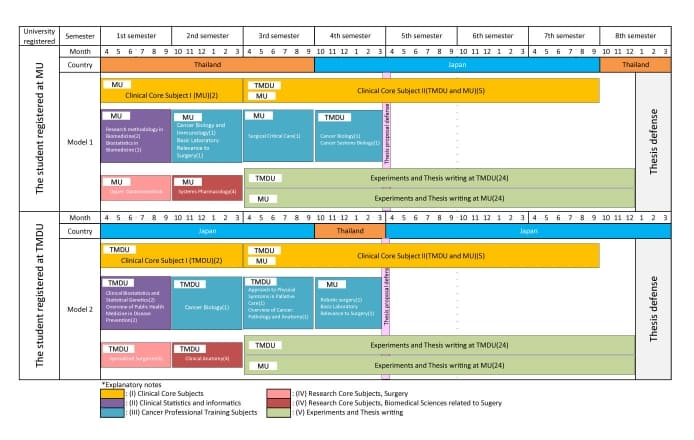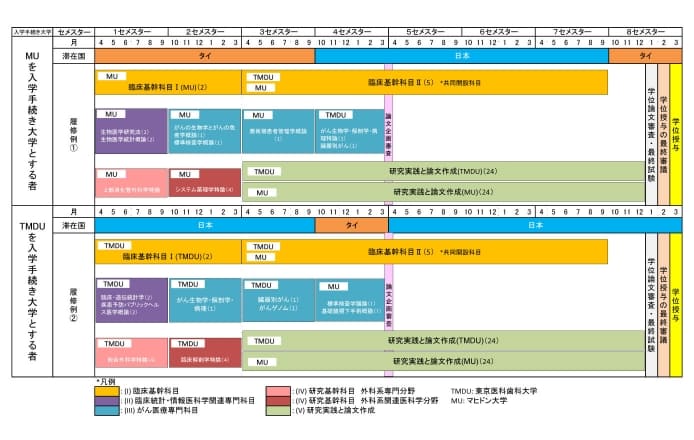Curriculum Policy
カリキュラムポリシー
The curriculum has been designed based on the following policies in order to create an environment in which students can acquire the knowledge, skills, experience and leadership abilities necessary to obtain a degree and become a highly specialized medical professional.
本専攻では、学位授与に要求される知識・能力及びリサーチマインドを有する国際性豊かな高度専門医療人材に求められる、より高度な専門知識・技術及びリーダーシップ・国際性を修得するために、以下の方針でカリキュラムを編成しています。




